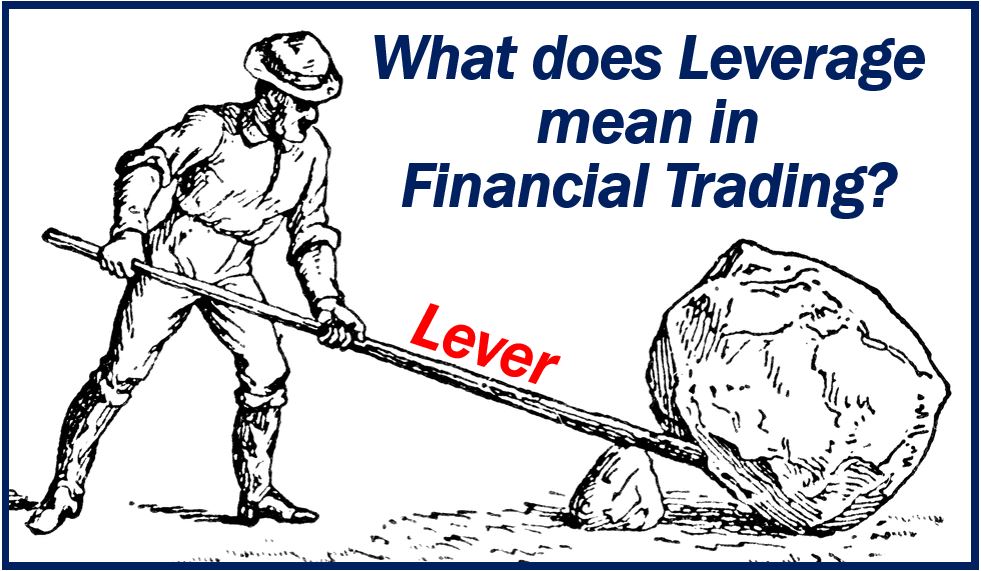Forex is the trading market of many different currencies in the world, which is mostly done through banks or brokers. It is open 24 hours a day, five days a week, sometimes even during holidays. Institutions and investors all have currency needs. With the use of forex, they can post orders to buy and sell currencies on the digital network of banks, institutions, brokers, and other traders.

Even new traders might have encountered the concept of leverage. Forex traders often use it to profit from relatively small price changes. But it’s such a common tool, some people barely know what it is.
What Is Leverage in forex?
Leverage is technically money borrowed to enlarge a trading position or the capital available to the trader. In forex, the money is given by a broker. When it comes to forex trading, a trader has the power to regulate and gain a large amount of money with just an initial margin requirement. And forex leverage is expressed in the ratio of the budget of traders to the size of the broker’s credit.
More About Leverage Ratio
The amount of leverage that a trader can gain or benefit from will mostly depend on the location of their broker, where they are based and administered. The available amount of leverage differs from place to place and between various brokers. The most common ratio goes up to 100:1 and can mean that for every $1,000 in the trader’s account, they can trade up to $100,000 in value.
Margin-Based Leverage
To know and compute for margin-based leverage, traders can use this formula:
Margin-Based Leverage = Total Value of Transaction / Margin Required
For a sample situation, if a trader wants to trade $100,000 and they are required to deposit 1% of the total transaction value as margin, the margin required would be $1,000. This would give margin-based leverage of 100:1.
Risks of Leverage
Leverage can greatly increase profit, but it can also increase the chances of losses. It is best for traders to carefully choose the amount of leverage in their accounts. There are risks, big and small, that traders must consider. Here are some of the factors affected by the risks of leverage:
Trader’s Positions
When the trading market moves, the trader’s profits or losses can be amplified. Once the equity in a trader’s account drops lower than a required amount or a limit, the broker may state a margin call. To fix this, a trader can either add more cash to their account or terminate existing positions to get the equity to a certain level. If a trader fails to meet the margin call, the broker can start closing the remaining open positions without the trader’s approval. In addition, one could end up paying a fee for every transaction done by the broker. These positions being closed out without the trader’s permission could easily destroy a trader’s existing trading plans.
Profits and Losses
As mentioned, there are possible negative effects of leverage, especially high leverage. Beginners or new traders who just want to use huge leverages and expect to gain big profits can experience large losses instead.
How to Manage Risks
Risks exist for every action a trader makes in forex. Neglecting these possible negative effects can lead to them happening to traders and disrupting their trading.
Fortunately, it is possible to manage these risks and avoid unnecessary negative effects. Here are some tips on how to manage risks:
-
Assess and do not engage
When opening a forex trading account, the temptation to use leverage as much as possible is always going to be there. Traders must overcome this temptation because they may lead to negative results. Assessing their position and not engaging in more leverage than they can afford to lose is a good way to manage risks.
-
Practice
One way to alleviate risks of trading with leverage is practicing before trading with actual funds. Traders can create demo accounts and practice within a trial period. With a trading account, a trader can test the systems they may have developed.
-
Starting and learning slowly
Particularly for a beginner, it is recommended to start small with the leverage and continue learning with the use of any educational content provided to help hone a trader’s knowledge and skill. If a trader wants to use leverage successfully, utilizing a little at a time is a good start. While the broker may offer large and high leverage, starting simple can make more sense. Any losses obtained would be more decent when leverage levels like that are used. As always it’s recommended to use the best UK forex platforms. Using an outdated platform can be a hinderance and undermine your performance.
-
Know your stops
Traders can use trailing stops or strategic stops. Using them would be convenient for traders as forex is available and open 24 hours a day. Stops can limit losses and protect any profits the trader has gained.
Traders must remember that leverage is still flexible to each of their needs. There is no reason not to use leverage if a trader understands how to manage it properly. Risks are present but it is avoidable and manageable with proper knowledge and skill.
Video – What is a Trader?
Interesting related article: “What is a Trader?”

